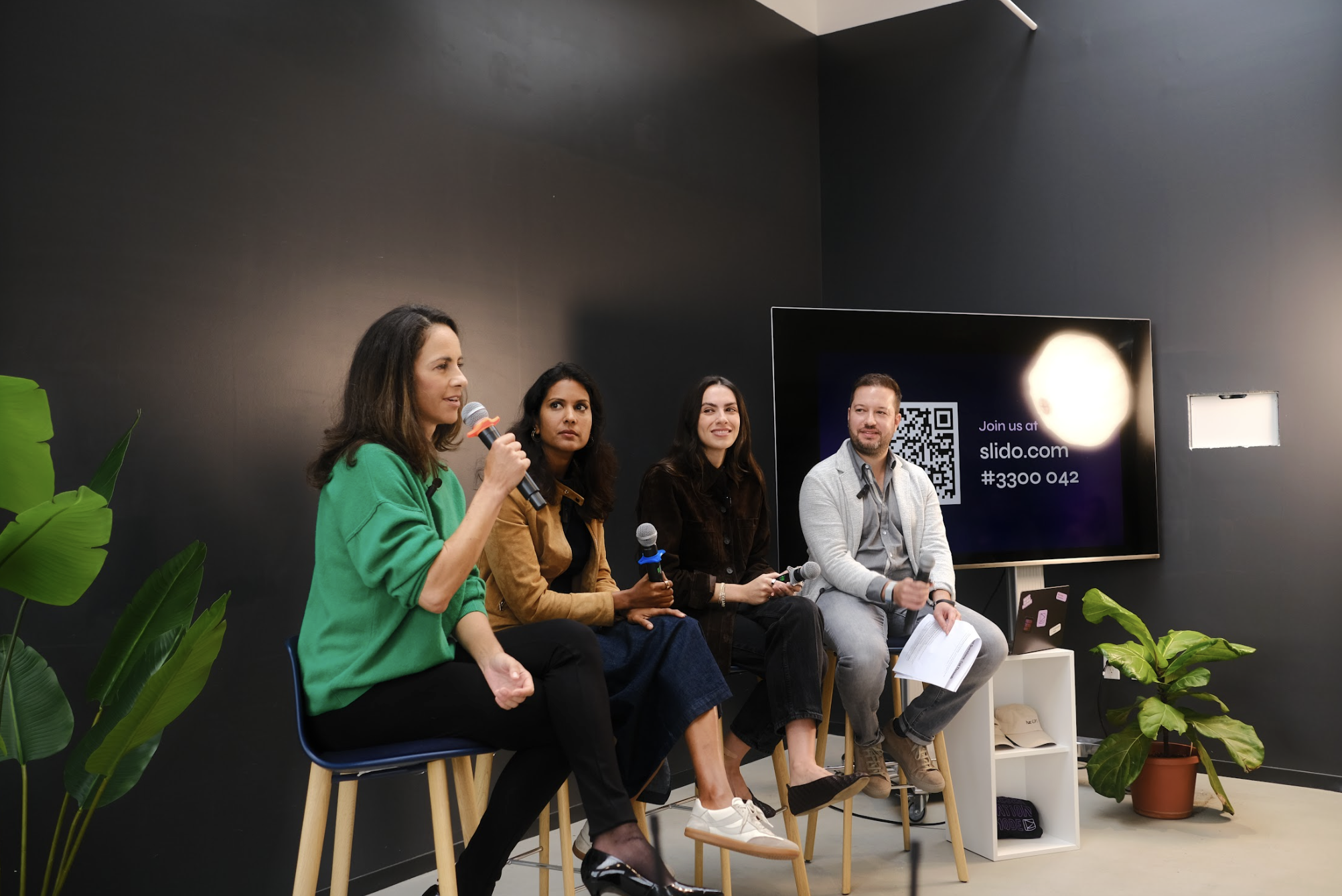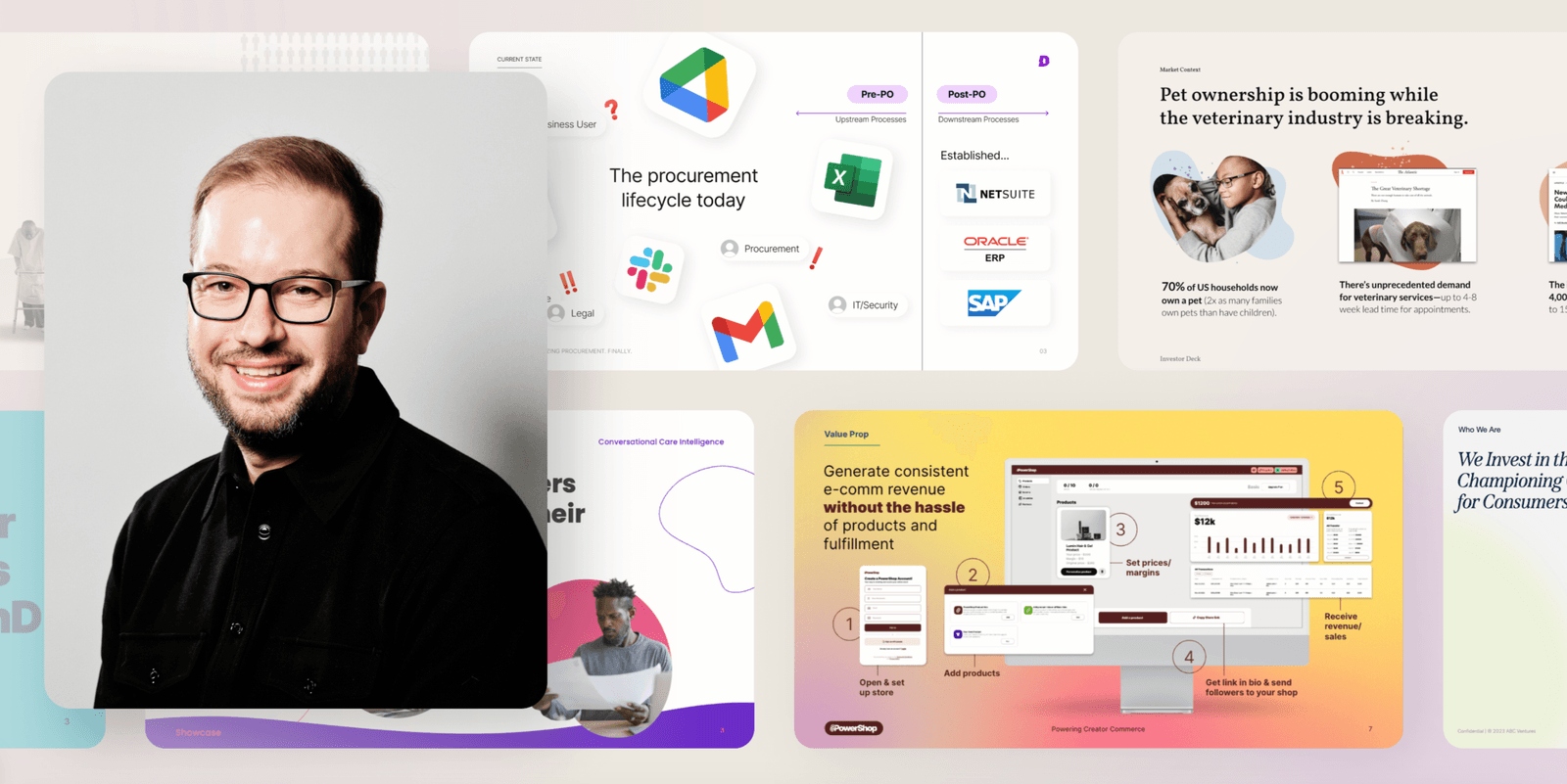
Insights from our Tech Week panel with three VCs who see dozens of AI pitches each day
Everyone's an AI founder right now. But not everyone's getting funded.
At SF Tech Week, Carl sat down with three VCs who see dozens of AI pitches daily: Renata Quintini from Renegade Partners, Leshika Samarasinghe from Twine Ventures, and Emily Libresco from Lerer Hippeau.
This post highlights the key takeaways for founders looking to cut through the noise in today’s market.
TL;DR:
- Prove product market fit
- Be honest about traction
- Have a solid "why me”
What VCs Look for in AI Startups Right Now
Carl: Where are we in the AI hype cycle right now? Is it getting hotter? Is it cooling off and going to other sectors?”
Renata: “AI will touch every industry. But there's a lot of tech looking for problems that aren't there. Investors aren't funding novelty, we're funding products that must exist.”
With record capital flowing into AI, investors have shifted from funding cool technology to necessary products.
Renata: “We see things that don't solve a real problem or aren't sustainable businesses. There's a lot of supply that is just technology looking for a problem that's not there.”
Your pitch has to go beyond AI; prove there's demand, a pain point, and enduring value.
How VCs Evaluate AI Founding Teams
Carl: “What makes you lean in at pre-seed?”
Leshika: “At pre-seed, we really dig into team. Team is the most important thing.”
Emily: “It's so much about feel. Do you believe this person when they say "Why me? Why now?" I love when people worked together in the past, then reconnected because they were each the smartest person they loved working with.”
Leshika: “Investors are back-channeling constantly. Any mutual connections, they're calling to understand your resilience, velocity, and passion.”
Pivots are normal in any startup. But in AI, where technology and use cases evolve so rapidly, investors assume the business will change over time. At early stages, they're betting on the team as much or more than the product itself.
Demonstrating Genuine Customer Demand
Customer conversations are fundamental to demonstrating that you’re building something valuable and scalable. In AI, where use cases are still emerging, this becomes even more important.
Renata: “Customer conversations are non-negotiable. That's when you understand what your product is doing. With enterprise, we hear "I want AI," but they can't verbalize what that means. We go to multiple customers and say 'describe what this product does.' If we get five different answers, how are you going to create one unified message?”
Customer interviews reveal whether you’re addressing a real customer pain point and are on-track towards genuine product-market fit.
How to Communicate Value Proposition to Investors
Carl: “What's missing in most pitches?”
Leshika: “Value proposition. We'll ask for the sales materials you use with customers because they show how clearly you can communicate ROI. You really want to make crystal clear how your solution is that much better than others, and what pain point you're solving for your customers.”
Most AI pitches struggle to articulate clear ROI. Investors want specific business impact, not just product features. Plain language beats buzzwords. "40% faster claims processing" > "AI workflow engine."
Traction Signals VCs Look for in AI Startups
Early-stage founders often worry they need revenue to raise funding. But investors would rather see genuine customer love and deep engagement than inflated metrics.
Emily: “Go deep with early customers, not wide with vanity logos. We have a healthcare company with design partners that aren't household names. But they're extremely deep with customers who have meaty problems.”
Renata: “We see companies that put logos on pitch decks, and we know people at those companies. So we call. 'Hey, how do you like it?' and they say 'Oh, I didn't know we used this.'”
Not having solid revenue metrics is solvable. The real risk? Getting caught stretching the truth. Deep customer relationships > superficial logo lists. Show genuine traction, not exaggerated claims.
Leshika: “Velocity of execution matters. Show how much you built in a short time. Design partners loving it, even before sales, that's impressive.”
Emily: “As investors, we know what normal timelines look like for an industry, and what exceptional looks like.“
Show you move fast, learn faster, and are hard to catch.
How AI Startups Can Be Defensible Against Big Tech
Carl: “How can founders build a moat when OpenAI or Anthropic could replicate any product?”
Renata: “Vertical plays. Horizontal platforms will get there quickly and have distribution. But vertical, where owning the workflow gives you unique data, that's defensibility.”
Leshika: “Proprietary data is key. We love esoteric, potentially niche but large markets. We invested in AI-native compliance software for agriculture, historically stodgy but massive.”
Your moat = data + workflow + speed. Not ‘we use a better model.’
Red Flags that Make VCs Pass on AI Pitches
Certain patterns instantly kill investment conversations. Understanding what triggers a "no" can save months of effort.
Renata: “The vertical revenue hockey stick in a short period. Also, please don’t confuse ARR with run rate.”
Emily: “Squishy revenue metrics. Extrapolating ARR from one good week.”
Leshika: “Not having a strong "why me." Sometimes it's like an intellectual exercise. But what's your unique advantage? It has to come from deep within.”
Emily: “Founders who say "I was either going to join X place or build this." That signals you'd take an (early) acquisition offer.”
Be honest about your numbers and deeply personal about your "why me." Both build credibility.
What's the Right Mindset for Raising AI Funding?
Renata: “We're not a hype fund. We're here to back companies that need to exist, not companies that can exist. Build for your customers. Find growing markets. Show the path to a billion. But don't build for investors.”
Build companies that must exist and the capital will follow.
Want to see the full conversation? Catch it on-demand
Raising soon? Let's chat
Renata Quintini, Co-Founder of Renegade Partners
Prior to launching Renegade in 2020, Renata specialized in early-stage deep technology investments as a Partner at Lux Capital. She previously served as General Partner at Felicis Ventures.
Leshika Samarasinghe, Founding Partner at Twine Ventures
Leshika backs bold founders solving massive problems in human and planetary health. Recent AI investments have included Atrix AI and Verse.
Emily Libresco, Head of Marketing at Lerer Hippeau
Emily works closely with portfolio companies such as Prose and Zipline, leveraging the power of narrative to help them attract talent, win customers, and earn media attention.
Carl Fudge, Founder & CEO of Presentation Mode
Carl is a fundraising and venture expert. He founded Presentation Mode to help founders at key inflection points by translating brilliant ideas into razor-sharp narratives and decks that cut through the noise.












